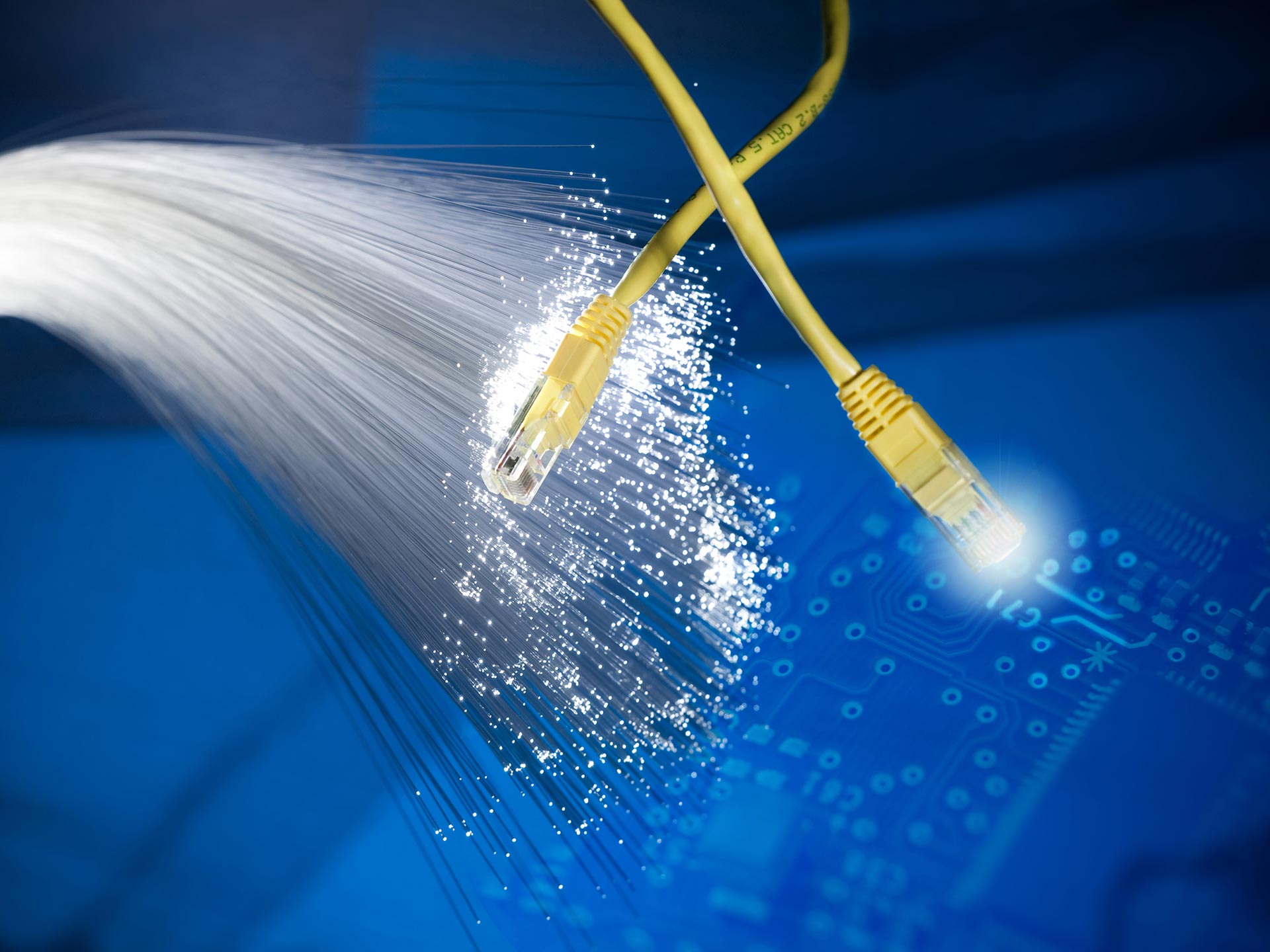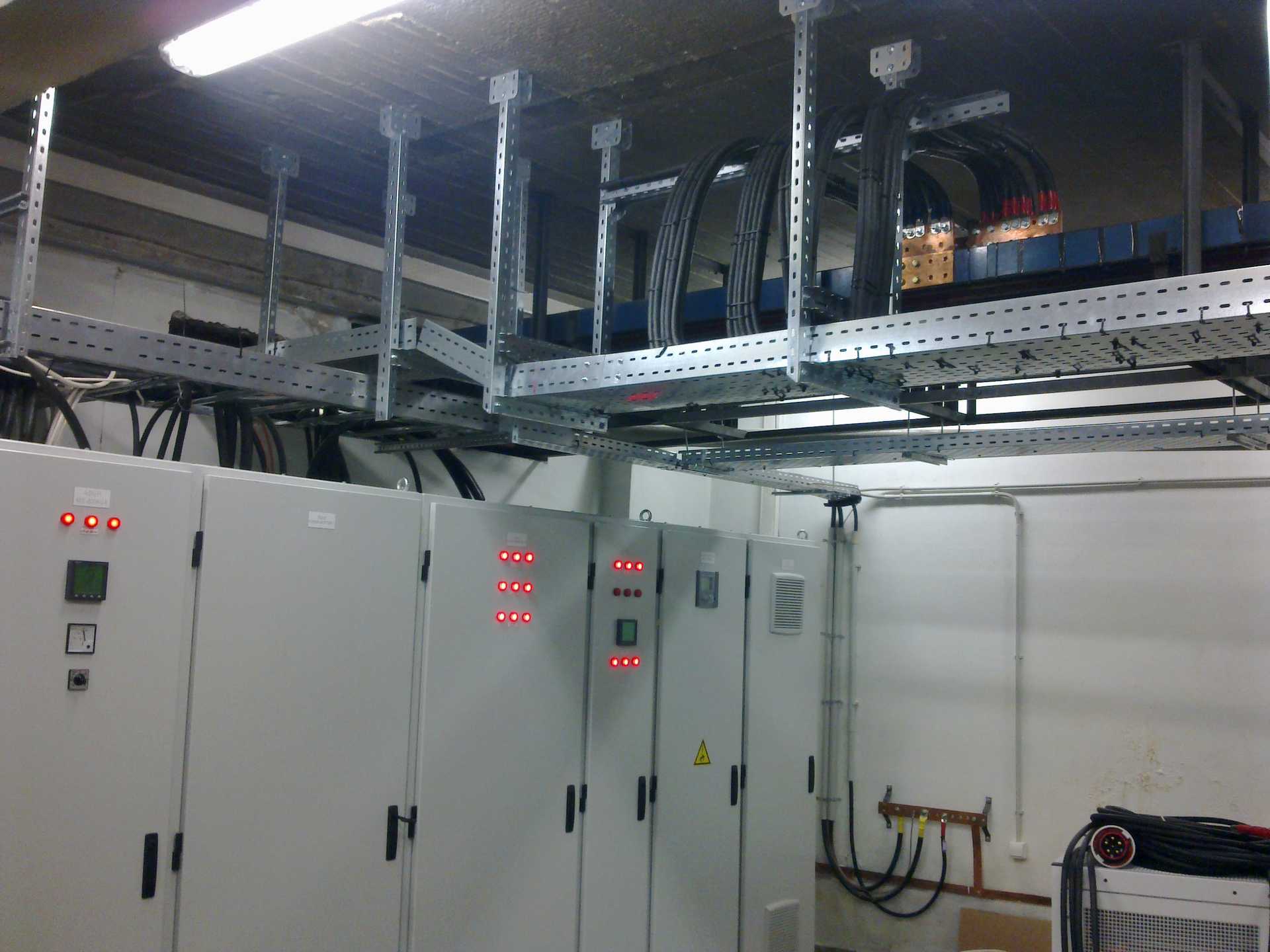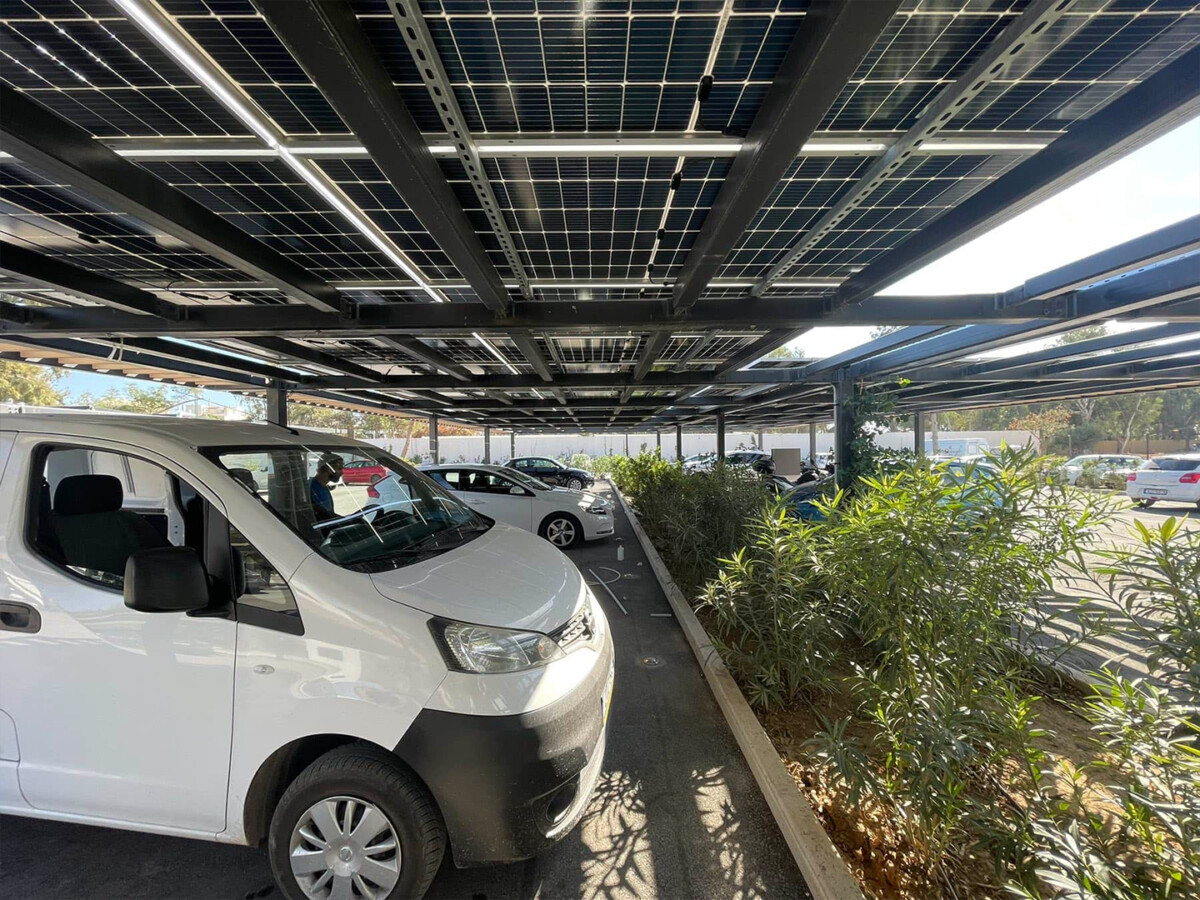Our company installs fiber optic networks.
E.ILE consists of experienced technicians specialized in the installation and measurement of optical fibers by making use of special instruments required for their welding and measurements. We provide complete solutions and guarantee the excellent installation and operation of fiber optic networks, which tend to be mandatory in every building in our country.

Fiber optics are preferable over copper nowdays, due to their advantages, some of which are:
Use of the fiber optics
Fiber optics are very thin threads, consisting of plastic or glass, through which digital data is transmitted in the form of light. They are increasingly preferred for use in the respective communications, as well as in the installation of various types of network, especially in facilities where the distances are long and the traditional cable of twisted pairs cannot be used, as well as where the requirements for transmission rates are particularly high.
Fiber optics are also preferred for use by private companies in local area networks, university network networks, broadband networks, cable TV networks, high-security applications (such as military), and finally industrial applications. , where there is high industrial noise, in which the optical fibers are particularly immune.



